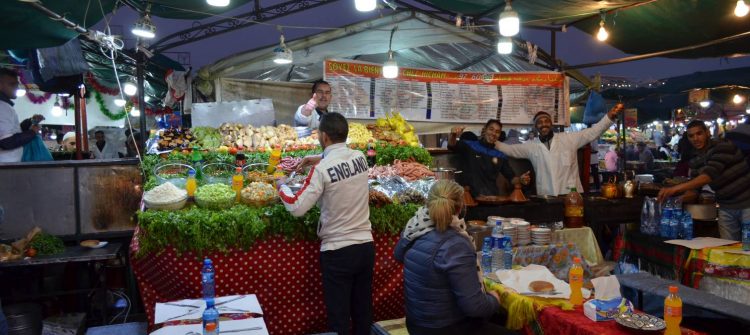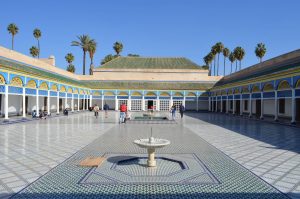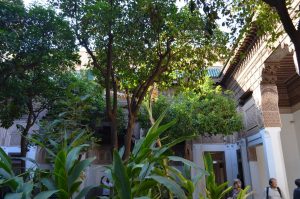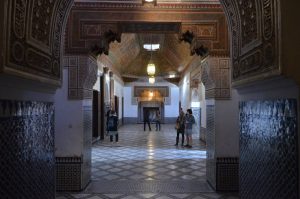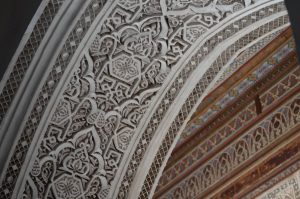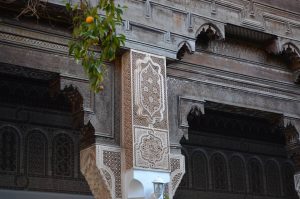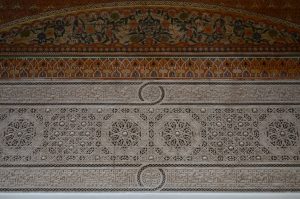Arabian nights – Making our way through Marrakech
19 December
We landed in Marrakech at 22:30 and went straight for the taxi stands. There was a huge billboard with the fixed prices they were supposed to charge for a ride into town: 105dh/10eur for a petite( Dacia Logan) or 150dh for a Grande taxi, which locals usually share among 6 people.
However, the men wearing long black dresses(djellaba) jumped to invite us into small taxis while others were covering the billboard with their bodies and others made sure we don’t talk to other tourists, even though we tried. Hailing a taxi from outside an airport is a sport we had perfected already so we stood our ground and managed to only pay the official price after being passed around like an uncomfortable package they needed to get rid of as soon as possible.
By the time we got into a cab I was already in full paranoia mode: memorized the cab number, checking the GPS if he is taking the right route while also trying to take any the scenery: a background of tall red walls and even taller palm trees slipping through the night. When the guy stopped at a car shop to inflate his tires, I was on the edge. I forced myself to squeeze out some jokes about the Romanian car he was driving and since he spoke enough English to fill in the gaps in my French, the tension went away and we were soon dropped off at the agreed square, a dark place with several alleyways creeping in all directions, with no one around except a group of young men loitering in the corner.
A youngster approached the taxi immediately and asked “Riad Chennoaui?” Um…yes..? I work for the Riad(riad=guesthouse), follow me. Hm….yeah, sure, I just love following strange men around dark narrow streets towards my untimely death. But he also turned out to be just fine.
I’ll skip the story about how awful the room was, how cold I was in the middle of the night when having to use the surprise external bathroom and how little I slept; this already sounds like a very long introduction to a complaint form.
20 December
Waking up in Marrakech on a Riad rooftop is pretty amazing. The call of the Mosque dotted the morning and jumped from rooftop to rooftop, spilling into hidden courtyards. The birds were cheerfully singing while soaking in the warm sun rays that lifted scented air from all around. It was like the smell of perfume, sweet incense and freshly baked bread replaced the air and melted away any resentment from the previous evening.
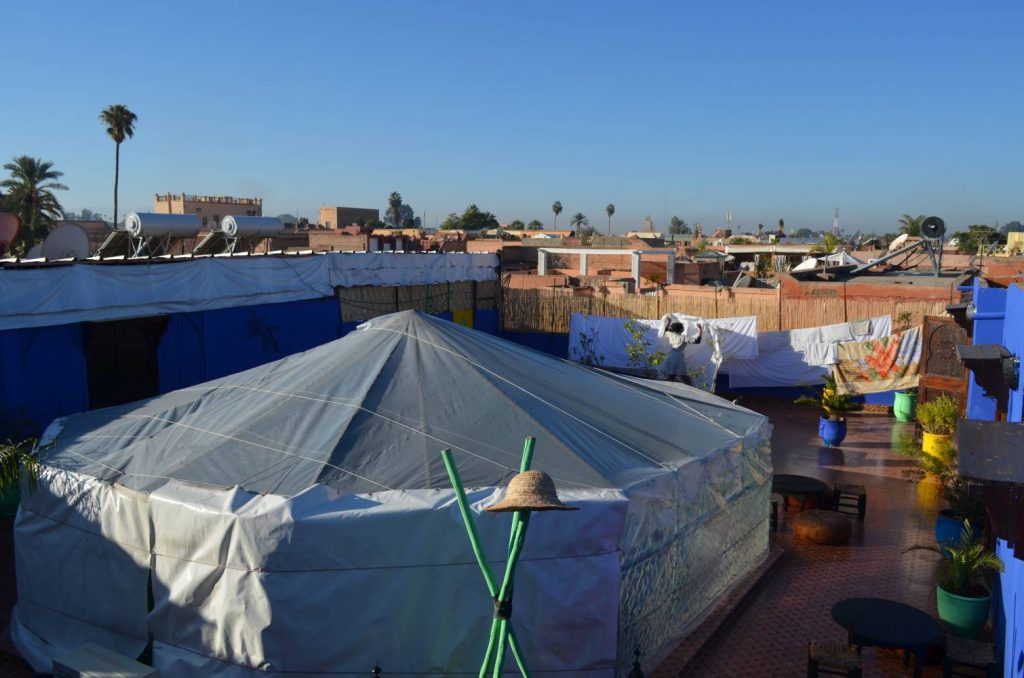
The first priority was to get the hell out of that Riad so after a scarce breakfast we roamed around the neighbourhood just randomly knocking on doors, not really knowing if behind the door we’ll find a 20eur or 500eur room. It was still early and the shops around the medina were slowly opening, with shopkeepers too sleepy to start selling.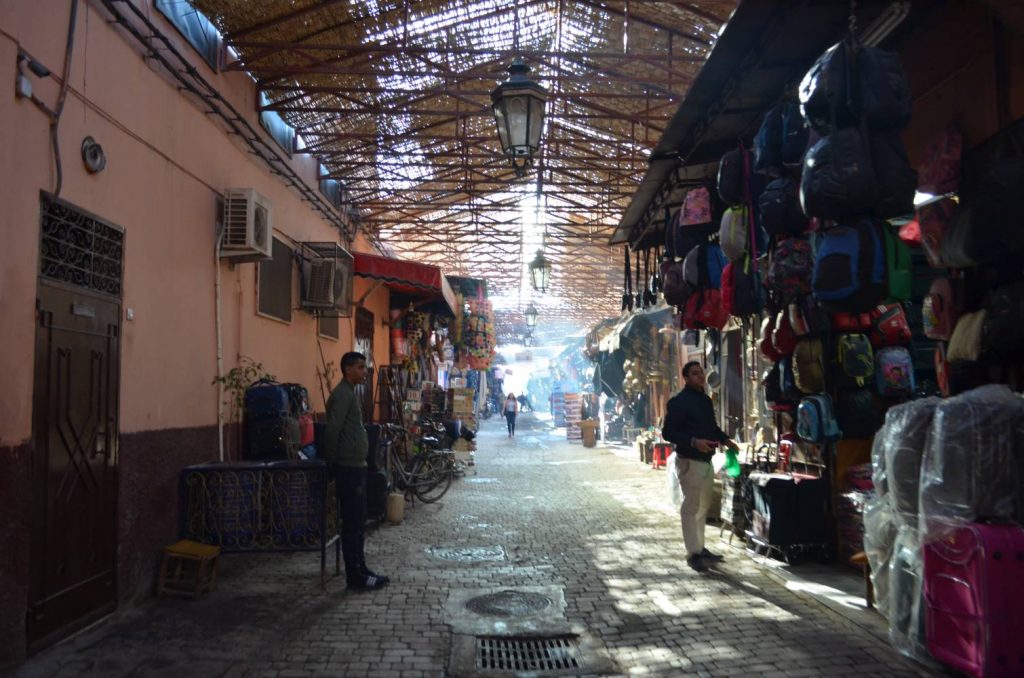
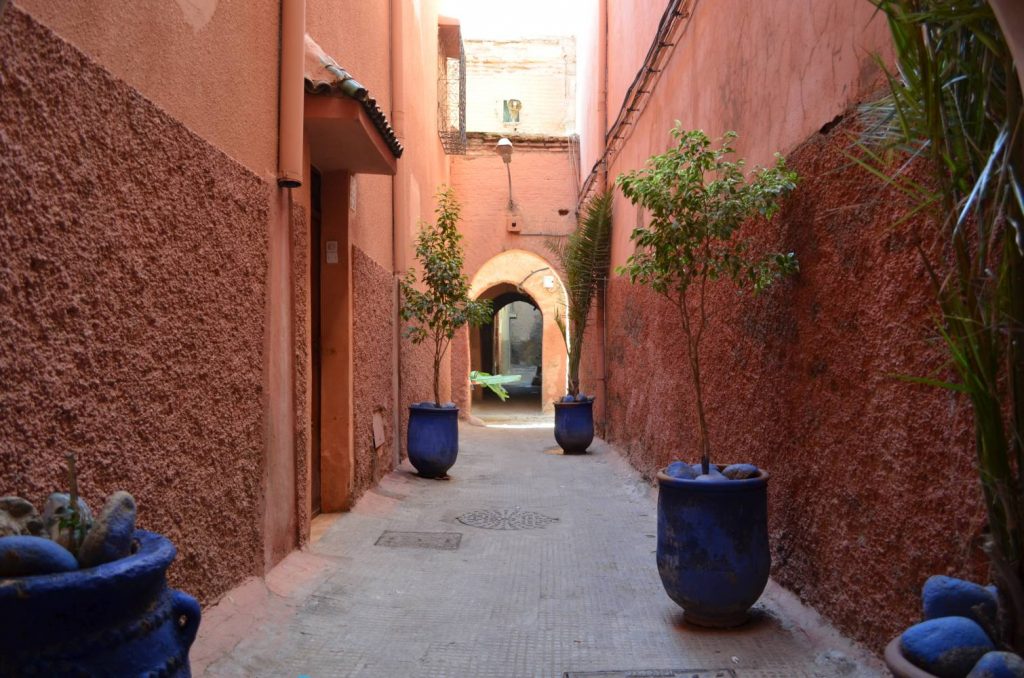


I got a chance to see the medina before it saw me, in peace and quiet and hassle-free. The streets were clean, perfumed and full of wonder. Maybe it was the Arabic dialogues people were having around us, maybe the fresh bread and spice shops but I managed to fell into fascination with this place.
Not long after that we found a nice riad, booked 2 nights and forgot all about the first cold, scary night in Marrakech. It was now time to explore and the Bahia Palace was just around the corner; well, more like a dozen corners around but you get the point. The first alley we go towards is blocked by a man: It’s closed! What are you looking for? Hasis, marijuana?
Of course, it was not closed so we carried on, passing workshops and donkeys carrying too heavy loads from one shop to another. We didn’t find the entrance but found a gate which apparently was for a guys house.
The palace is closed, he said while dismounting his scooter. Opens at 13! But the Jewish quarter is just here, you should look around, there are nice shops for spices, local prices not like in the square. I’ll show you.
No, thanks, you’re too kind.
No, don’t worry, I don’t ask for money, brother, no money, no honey, I just show you. Reluctantly we followed and along the way he showed us a local bakery where men brought bread that the women made at home and were all baked together. He bought for us a hot round bread for 1dirham and slowly got under our skins. The freshly baked bread helped relax us, although I knew he could not possibly walk so much with us for nothing. We finally arrived at the Jewish quarter or so he said and he introduces us to a shop owner. And the pitch continued: do you know what this is? This is Berber lipstick, this is argan, this is sofran, this is tea and cumin and eucalyptus flakes and solid patchouly perfume and mint and this powder is for acne and this one for virility and all those are mixes for tajine and this is a gift for you and please have some mint tea, my sister.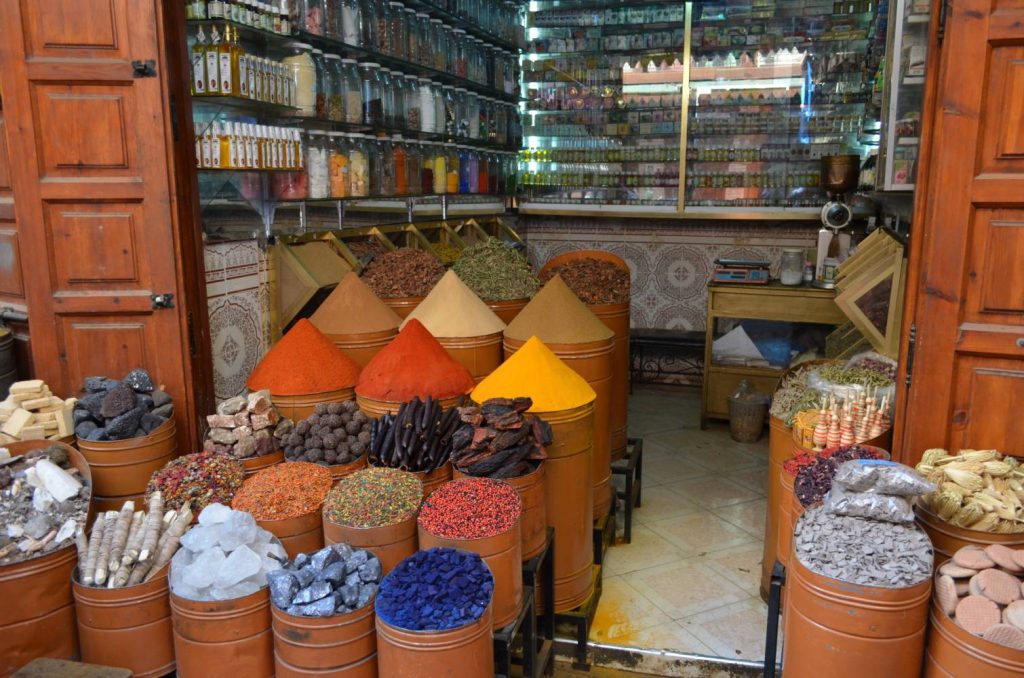

Ok, I can spend some cash, the guy was alright so we take some tea (100gr) and some face mask powder(30gr) and ask for the price: 20euros with discount. Apparently, tea costs 2dh/ gram so a kilo of tea is 2000dh which is roughly a shit more than tea is worth, even with his discount.
If you haven’t guessed it, we did not buy anything, left, turned 3 corners and walked right into the Bahia Palace which had been open all day.
Beautiful place really, with orange and banana trees in the courtyards, a kaleidoscope of tiles all around, vast rooms for the vizier and his blind musicians and many mistresses. If there is one thing I regret about not being here some hundreds of years ago is that I didn’t get to see the palace in full glory, with all the carpets and couches and lamps. I’m sure it was a lavish place, where mere common folk like us would never have stepped foot. Luckily, the new Riad was pretty authentic and gave us some indication of how these rich palaces looked when lived in.
After Bahia, we headed towards Badi Palace and although we were 50metres away, some guy pointed us left instead of the very obvious right(we did not ask for directions) and it took us an additional 20mins to make our way back. By this time we’d figured we were being herded like a bunch of sheep towards the same “Jewish quarter” shops by every man at every corner. But we got inside the palace and once more found peace and quiet.
The 16th-century palace complex is impressive even in ruins. The multi leveled gardens and ponds, guest houses and annexes were a nice escape from the crowded streets outside the walls. Space is really a luxury around here and the sultan that manned this palace had plenty of it.
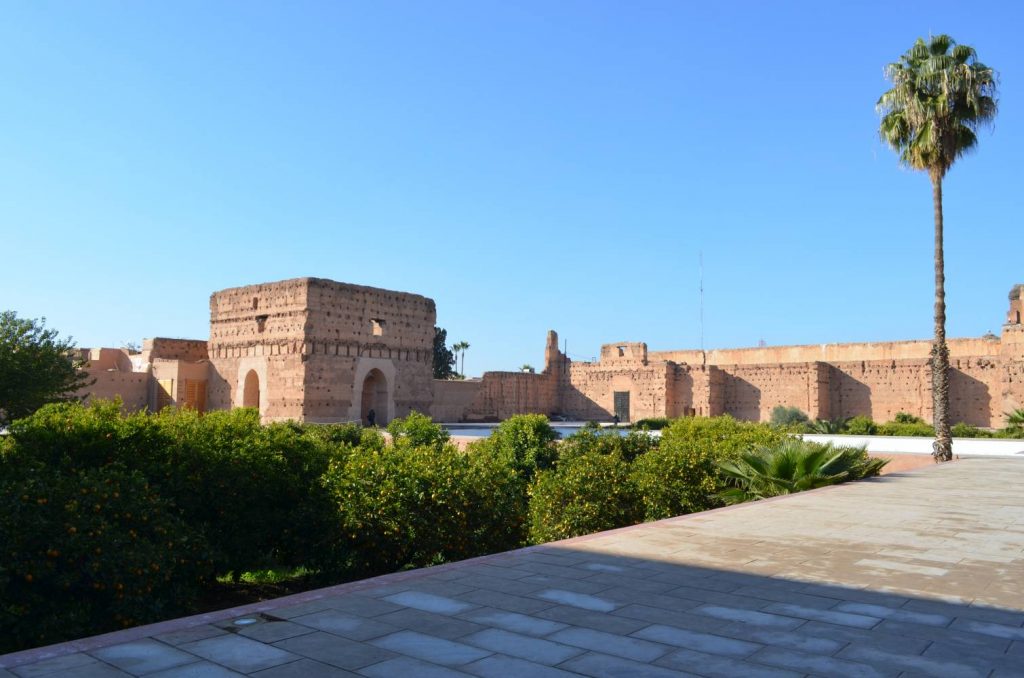
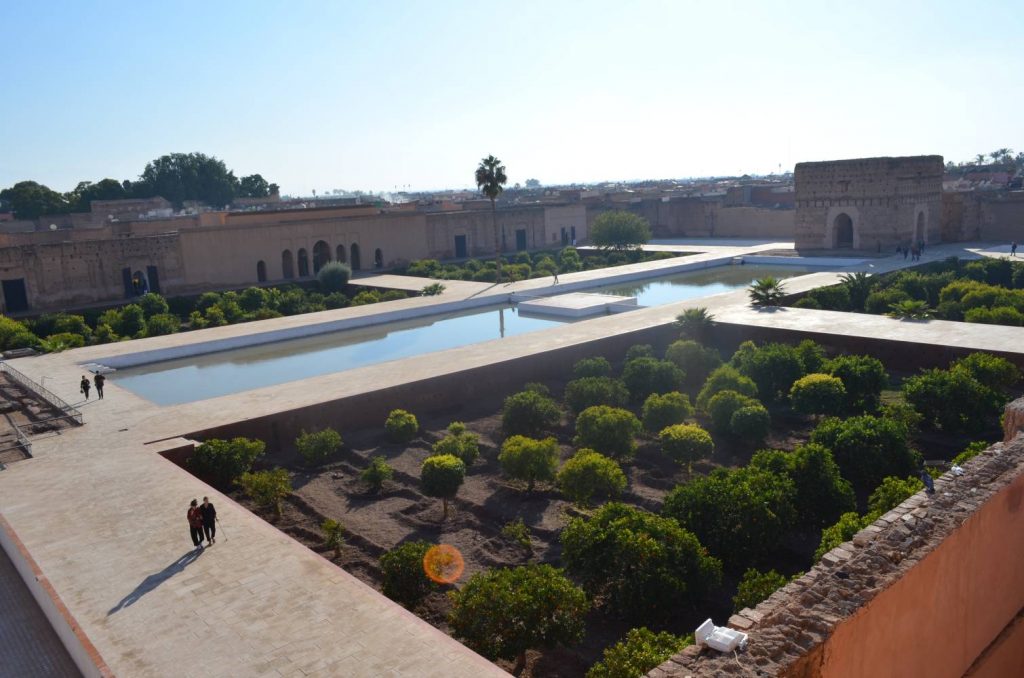
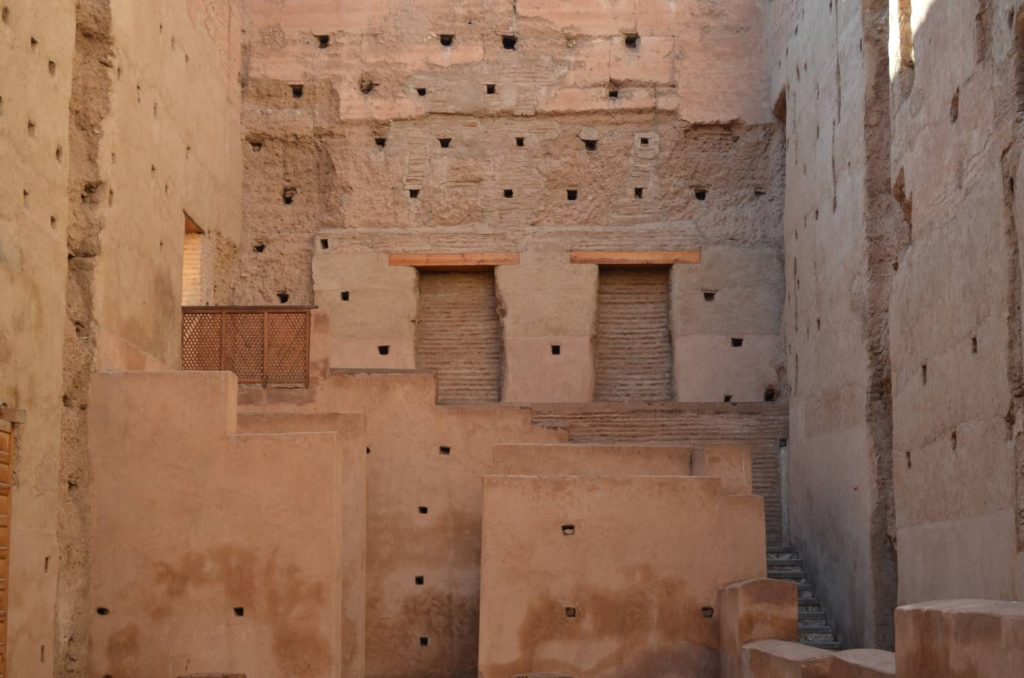
Not so roomy was the underground jail, with chamber after chamber of chains and shackles nailed to the floor, long dark corridors where unspoken horrors must have taken place. The exposition tags were strangely modified with a marker, changing the labels from “room for indigenous prisoners” to just “room for prisoners” on almost every tag. Censorship or historical re-interpretation, I’ll never know.
It was time to hit the medina again to get some lunch so we wandered around the Jemaa el-Fna square until we found a shop where only locals were seated. The lamb meat on the bone (tanjia) with a side of bread was simple and tasty and kept us full for the entire day. We still had lots of hours of daylight so we wondered around the Koutoubia park, sipping on freshly squeezed pomegranate juice and watching the infamous Jemaa el-Fna square slowly get filled up with snake charmers, henna artists, storytellers and everything in between.
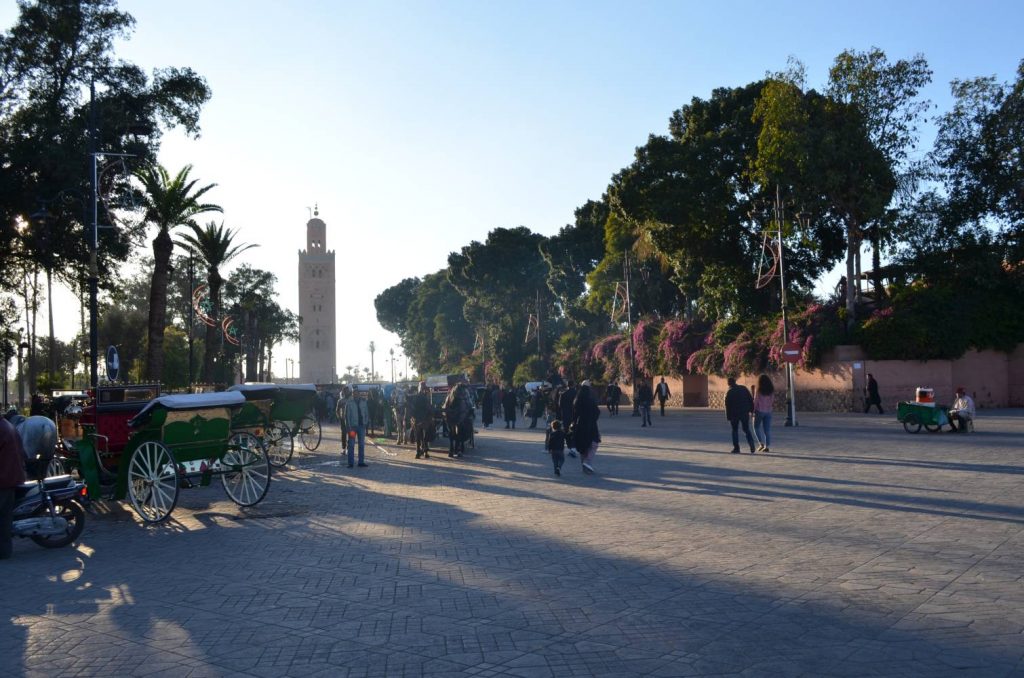
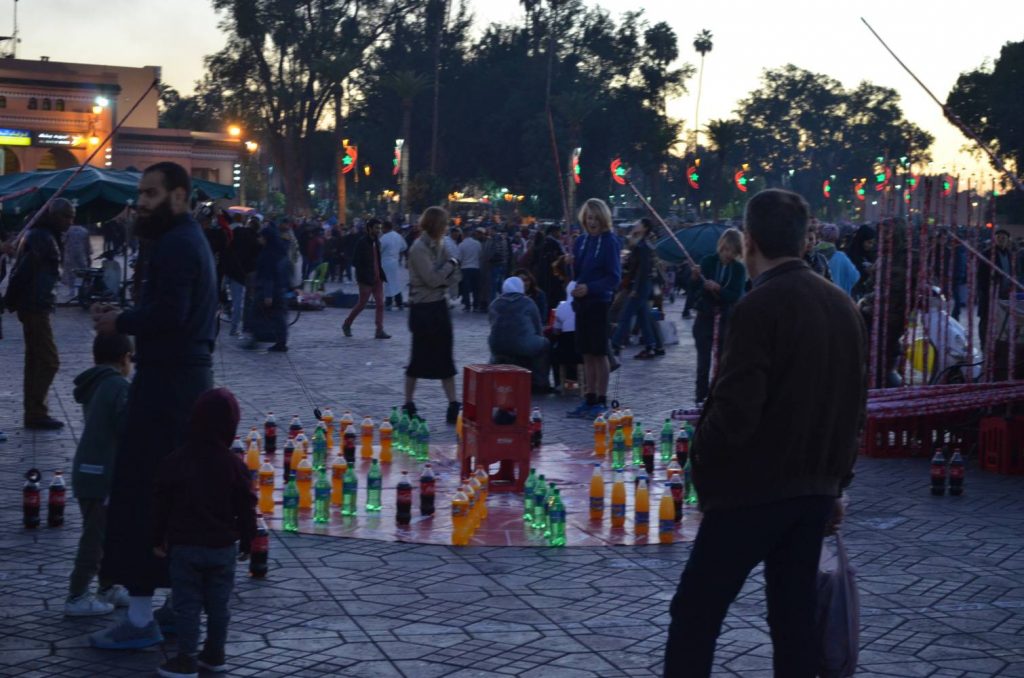
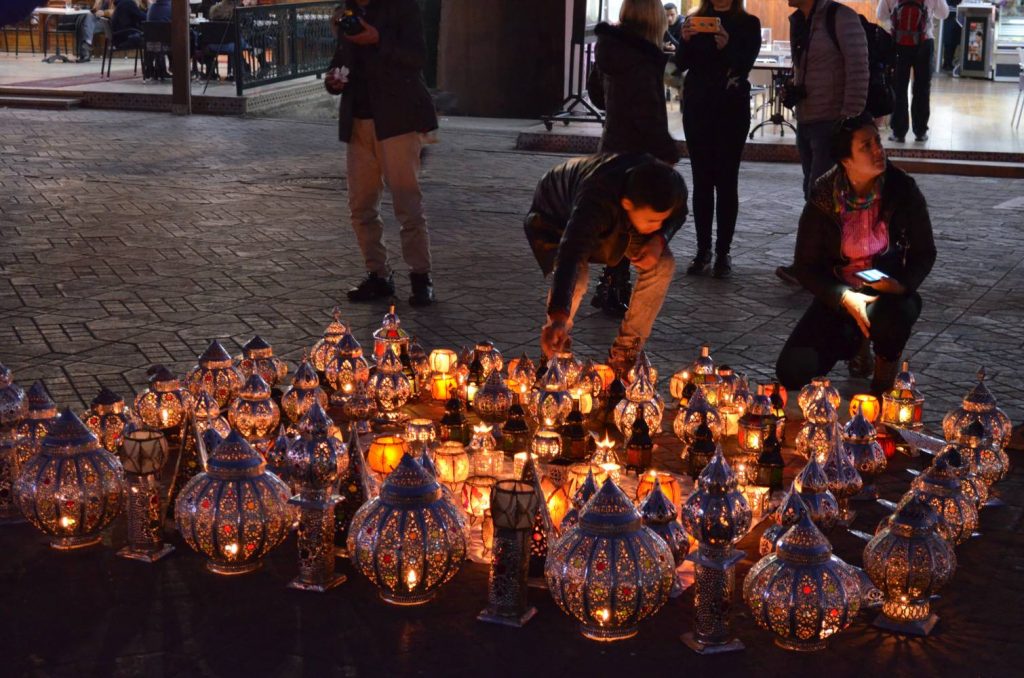
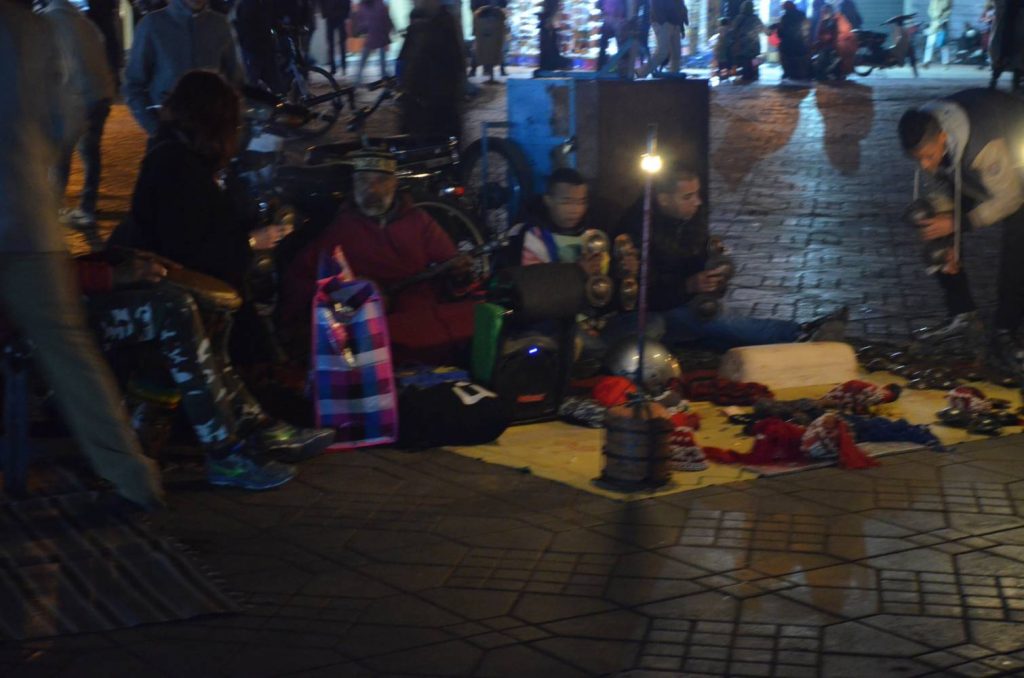
Getting through the square more than 3 metres without getting stopped would be a miracle. The food stall promoters are moody, oppose letting you take photos without eating and work in a gang, passing around hashish-filled cigarets and playfully snagging customers from one another.
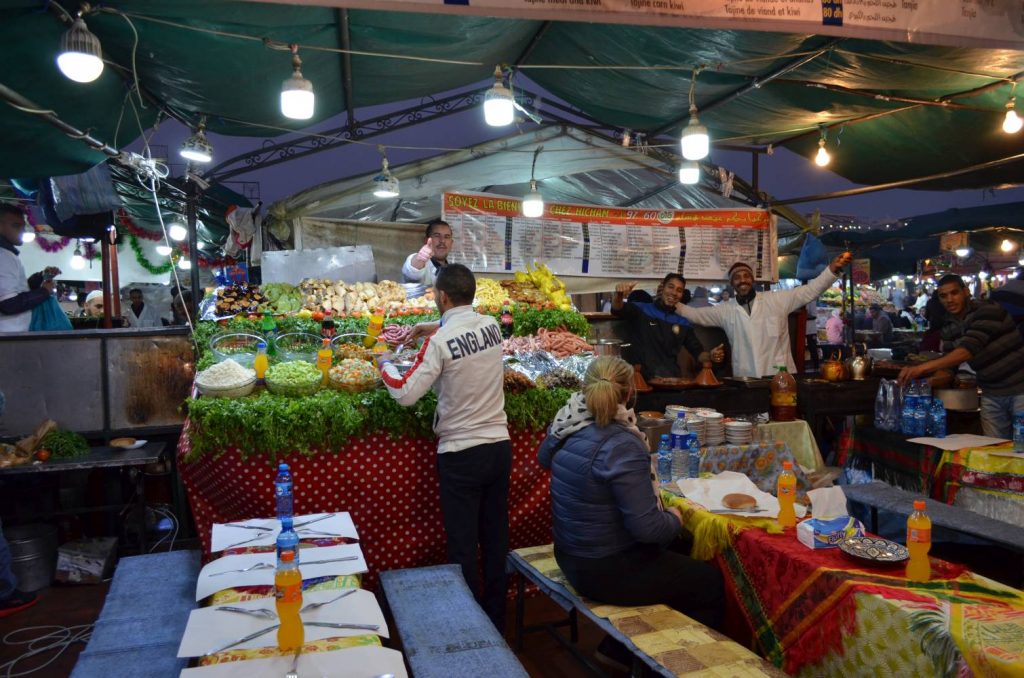
If you even look like you might sit down, the 10 men working at each stall all start clapping and shouting like you’re really welcomed. But you know you’re not, never forget this on the streets of the Marrakech medina: most everything they tell you is bent if not a complete lie and smiles are not offered for free. The words of our latest innkeeper echoed in my head throughout the entire journey: you pay anyway.


